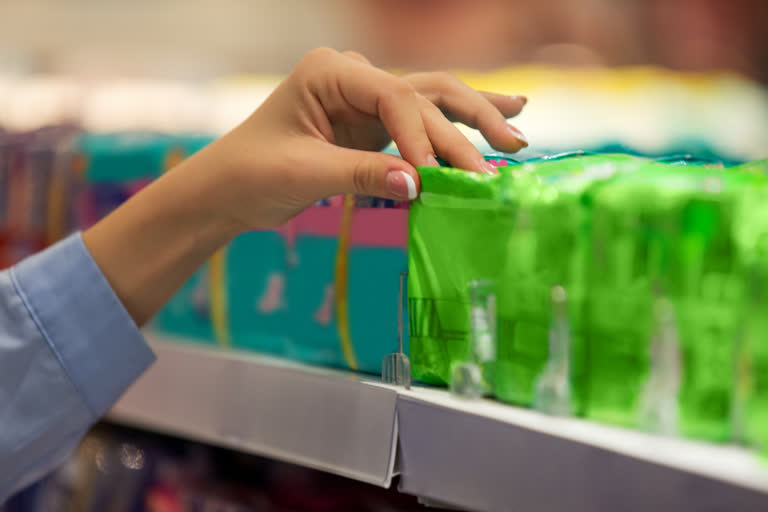Hyderabad: For most Indian women it is personal, yet international.
With the menstrual hygiene space coming of age in India in the past decade and substantial increase in use of disposable sanitary pads, the focus has now shifted to the core issue – manufacturing. And there it seems lies the glaring gap. Most sanitary napkins sold in India are made using imported machinery and raw material.
Multinational companies (MNCs) grab a major share of the Indian sanitary market space. According to a report titled ‘Feminine Hygiene Products Market in India 2019’, sanitary napkin brand Whisper by Procter and Gamble Hygiene and Healthcare Ltd (P&G) held the largest market share in India (51.4%) in 2018, followed by Stayfree (Johnson and Johnson) and Kotex (Kimberly-Clark), with the rest going to local players like Saral Designs, Shudh Plus Hygiene Products (Niine), Sirona Hygiene, Saathi Pads and others.
Interestingly, most MNCs are manufacturing their products on high-speed sanitary pad machines imported from Europe. Costing around Rs 40 crore, each machine can make 600-1,200 pads per minute. China also manufactures and exports such high-speed machines, which cost Rs 5 – Rs 10 crore and are used by several local Indian players.
“Currently in India, there are no OEM (original equipment manufacturer) of these hi-speed machines. So, they have to be imported,” Kartik Mehta, co-founder and chief technology officer of Saral Designs, a Mumbai-based hardware start-up in menstrual hygiene space, told ETV Bharat.
Saral Designs is India’s key manufacturer of semi-automatic sanitary pad making machines that are basically an automated version of the innovative low-cost sanitary pad-making machine designed by Arunachalam Muruganantham (on whose life the movie ‘Padman’ was based).
Read more:Govt allow exports of surgical masks, medical goggles with certain restrictions
Mehta says the semi-automatic machinery designed by Saral Designs is basically purchased by district-level players and not national brands. The most sold version of the machine at Saral Designs costs around Rs 25 lakh and can make 16 pads per minute – a much lower number compared to its foreign avatars.
Deep Bajaj, founder of Sirona Hygiene Pvt Ltd that sells biodegradable sanitary pads in India, says their product is not manufactured in India and is fully imported from Europe and China.
“The biodegradable technology is difficult to make in India… even if we import a machine, we will have to go back to China for imports of raw material like bamboo,” Bajaj said.
Talking of raw material, most sanitary pads have a core absorbent material that is based on cellulose (eg. wood pulp, bamboo etc). For this too, Indian manufacturers rely on imports from China because of better quality and attractive pricing.
“There are units that process bamboo in India (since India is the second largest manufacturer of bamboo after China), but I can’t trust their quality,” says an apprehensive Bajaj.
Such high dependence on imports for basic hygiene products like sanitary pads is a definite red flag for India. The Government seems to have failed in creating an ecosystem where sanitary napkins can be manufactured in India using local resources.
Promotion of internal sourcing of raw material and machinery is the only way out if India wants to cut imports and become Atmanirbhar (self-reliant).
Till then, providing quality sanitary pads at an affordable price to 365 million menstruating women in India, will primarily remain a foreign affair.
(ETV Bharat Report)



